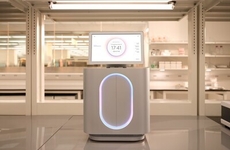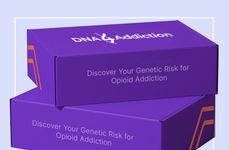
Nebula Genomics Uses User Data to Better Improve Medical Drugs
Justin Lam — November 23, 2018 — Tech
References: nebula.org & digitaltrends
Companies like 23andMe and Helix offer users the chance to have their genome sequenced for a price, but a new startup called Nebula Genomics is offering users genome sequencing for free. While the experience is entirely free, users undergoing the process will have to provide information about their health, which is then shared with researchers in addition to any DNA data.
Nebula Genomics was co-founded by Professor George Church of Harvard Medical School and the process he has developed has been described as the "next-generation sequencing technology." This new technology is not only incredibly accurate but also keeps costs down and allows for more people to observe their own genome. The ultimate goal of Nebula Genomics is to help gather enough data to develop and produce new drugs for treating a range of possible diseases.
Nebula Genomics was co-founded by Professor George Church of Harvard Medical School and the process he has developed has been described as the "next-generation sequencing technology." This new technology is not only incredibly accurate but also keeps costs down and allows for more people to observe their own genome. The ultimate goal of Nebula Genomics is to help gather enough data to develop and produce new drugs for treating a range of possible diseases.
Trend Themes
1. Free Genome Sequencing - The disruptive innovation opportunity is to democratize access to genome sequencing by developing sustainable business models.
2. Sharing Health Data - The disruptive innovation opportunity is to create secure and ethical platforms for sharing health data to drive medical research and innovation.
3. Next-generation Sequencing Technology - The disruptive innovation opportunity is to develop affordable and scalable genome sequencing technology that is accessible to more people for individualized healthcare and precision medicine.
Industry Implications
1. Healthcare - The disruptive innovation opportunity is to leverage genome sequencing data for preventive and personalized medicine, drug discovery, and disease management.
2. Pharmaceuticals - The disruptive innovation opportunity is to use genome sequencing data to accelerate drug discovery, clinical trials, and personalized therapeutics.
3. Biotechnology - The disruptive innovation opportunity is to apply genome sequencing data to advance gene editing, gene therapy, and regenerative medicine to treat genetic disorders and diseases.
2.3
Score
Popularity
Activity
Freshness























